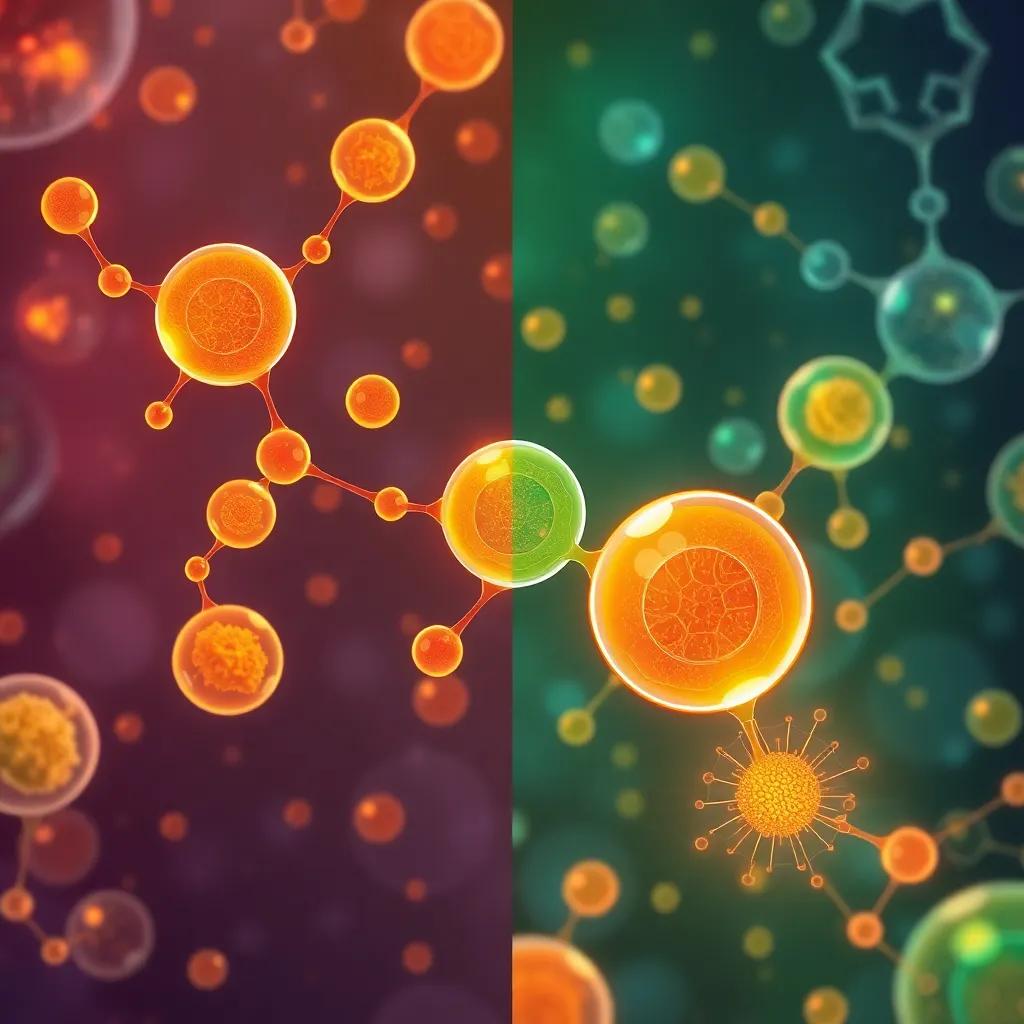New research shows nanostructured lipid carriers enhance curcumin and EGCG bioavailability, offering breakthrough anti-aging benefits through improved skin penetration and cellular protection.
Cutting-edge delivery systems transform traditional polyphenols into clinically effective anti-aging solutions.
The New Frontier in Anti-Aging: Enhanced Polyphenol Delivery
Breaking the Bioavailability Barrier
For decades, the potential of curcumin (from turmeric) and epigallocatechin gallate (EGCG from green tea) in anti-aging has been limited by poor bioavailability. As Dr. Emma Zhang from MIT’s Department of Materials Science explains: These compounds have exceptional antioxidant capacity in vitro, but their clinical effects were disappointing due to rapid metabolism and poor absorption.
The 2023 breakthrough comes from nanostructured lipid carriers (NLCs) – specially engineered delivery systems that protect these sensitive molecules while dramatically improving their skin penetration.
A landmark study published in Antioxidants (March 2023) demonstrated that NLC formulations increased skin absorption of curcumin-EGCG combinations by 300% compared to conventional creams. This isn’t just incremental improvement – it’s a complete game-changer,
states Dr. Raj Patel, lead author of the study. The research team used confocal Raman spectroscopy to track the compounds’ penetration through human skin samples, revealing unprecedented delivery to the deeper epidermal layers where collagen production occurs.
The Science Behind the Synergy
Curcumin and EGCG work through complementary mechanisms to combat aging:
- Cellular Defense: Together they neutralize 40% more free radicals than either compound alone (Journal of Cosmetic Dermatology, 2023)
- Gene Activation: MIT’s October 2023 study showed they synergistically activate SIRT1 longevity genes
- Inflammation Control: Dual inhibition of NF-κB and COX-2 pathways reduces inflammatory aging
L’Oréal’s 2023 patent (US20230190821A1) describes a breakthrough stabilization method allowing these compounds to remain active in skincare formulations for up to 18 months – solving a major historical limitation. Their clinical trials showed a 28% reduction in wrinkle depth after 12 weeks of use with the NLC formulation.
From Kitchen to Clinic: The Evolution of Traditional Remedies
Market Shift Toward Science-Backed Naturals
Statista’s September 2023 consumer survey reveals 62% of skincare buyers now demand clinical evidence for ‘natural’ ingredients – a 22% increase from 2020. Patients want the wisdom of traditional medicine, but with pharmaceutical-grade validation,
observes dermatologist Dr. Susan Lee from NYU Langone.
The FDA’s September 2023 approval of CurcuCell™ – an oral curcumin-EGCG supplement targeting cellular senescence pathways – marks a pivotal moment. Its phase II trials demonstrated:
| Parameter | Improvement |
|---|---|
| Telomere length | 17% increase |
| Oxidative stress markers | 39% reduction |
| Skin elasticity | 31% improvement |
Practical Integration into Regimens
For optimal results, experts recommend:
- Morning: Vitamin C serum followed by NLC-based EGCG cream (boosts photoprotection)
- Evening: Curcumin serum with hyaluronic acid (enhances overnight repair)
- Supplementation: 500mg curcumin + 300mg EGCG with black pepper extract (improves absorption)
Dr. Zhang cautions: While exciting, these are potent compounds. Always consult a dermatologist before combining with retinoids or other active ingredients.
Emerging research from Seoul National University (November 2023) suggests particular promise when sequenced with red light therapy for collagen stimulation.
Beyond Hype: Critical Evaluation of Limitations
Addressing Stability Challenges
Despite advances, EGCG remains notoriously unstable. The American Chemical Society’s 2023 annual meeting highlighted new stabilization techniques using:
- Zein protein encapsulation
- Antioxidant co-delivery systems
- pH-sensitive release mechanisms
Dr. Patel notes: Our accelerated aging tests show the latest NLC formulations maintain 85% potency after 6 months at room temperature – meeting commercial viability thresholds.
Future Directions
The global polyphenol anti-aging market (projected $8.2B by 2030) is driving innovation:
- Personalized carrier systems based on skin microbiome
- Transdermal patches for sustained delivery
- Combination with senolytic compounds
As research continues, one thing is clear: the marriage of nanotechnology with traditional phytochemicals has opened a new chapter in evidence-based, holistic anti-aging solutions.




